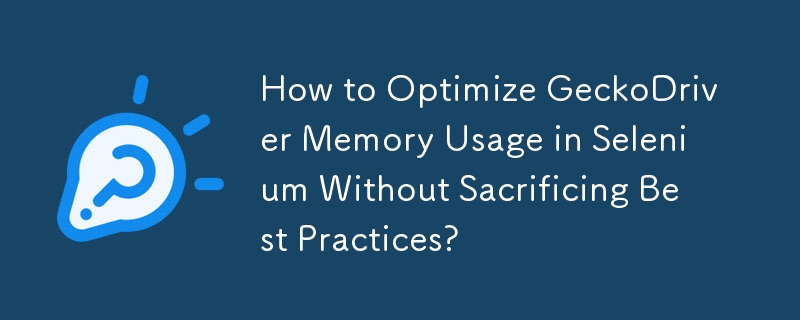

Question:
How can I prevent the GeckoDriver process from consuming excessive memory while running Selenium tests without using driver.quit()?
Answer:
Best Practice:
It is not advisable to avoid calling driver.quit() after each test run for memory optimization. Selenium best practices recommend invoking quit() within the teardown method to completely end the browsing session and kill the WebDriver instance.
Solution for Dangling WebDriver Instances:
However, if you need to kill dangling WebDriver instances (e.g., GeckoDriver.exe processes), you can use the following methods:
Java (Windows):
1 2 3 4 5 6 7 |
|
Python (Windows):
1 2 |
|
Python (Cross Platform):
1 2 3 4 5 6 7 |
|
By utilizing these methods, you can terminate unwanted GeckoDriver processes without affecting your tests or closing the browser window. Remember that following best practices for memory management, including invoking quit(), is crucial for optimal Selenium test execution.
The above is the detailed content of How to Optimize GeckoDriver Memory Usage in Selenium Without Sacrificing Best Practices?. For more information, please follow other related articles on the PHP Chinese website!




